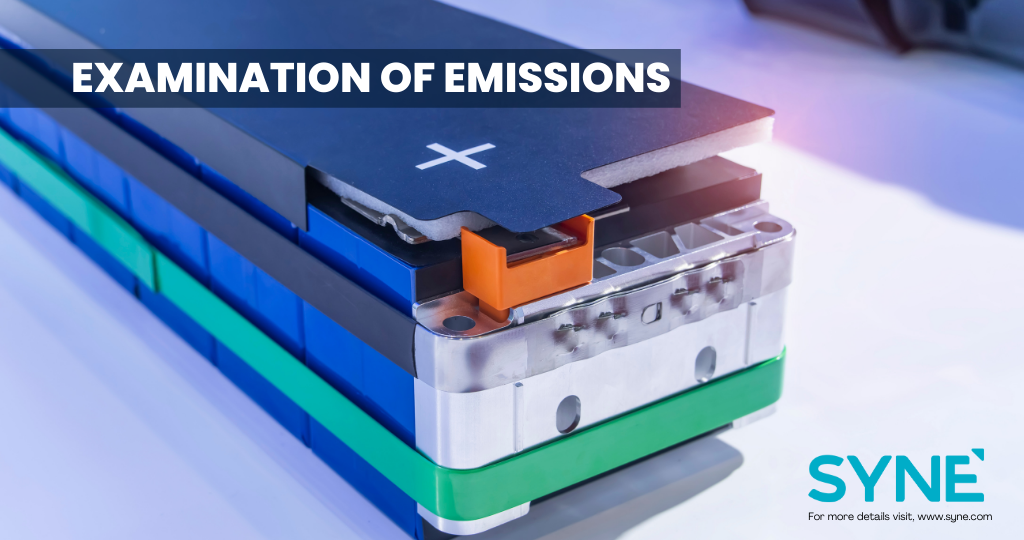The Environmental Toll of Lithium Mining
Environment
CREATED
07 Feb 2024
syne.com/story/the-environmental-tol...
The Environmental Cost of Lithium Mining: An Examination of Emissions
The exponential growth in demand for electric vehicles (EVs) and renewable energy storage solutions has led to a surge in the extraction of lithium, a critical component in lithium-ion batteries. While lithium mining promises a cleaner future by reducing reliance on fossil fuels, it is essential to evaluate its environmental repercussions.
Overview of Lithium Mining:
Lithium is primarily extracted from lithium-containing minerals such as spodumene, lepidolite, and lithium-rich brines found in salt flats. The mining process involves various stages, including exploration, extraction, processing, and refining. Each of these stages contributes to emissions, directly or indirectly, through energy consumption, transportation, and chemical processes.
Emissions from Exploration and Extraction:
Exploration activities typically involve the use of heavy machinery, drilling equipment, and transportation vehicles, which rely heavily on fossil fuels. These activities emit greenhouse gases (GHGs) such as carbon dioxide (CO2), methane (CH4), and nitrous oxide (N2O). Additionally, the extraction of lithium ore from the earth's crust may require significant energy inputs, particularly if the deposits are deep or inaccessible, leading to further emissions.
Processing and Refining Emissions:
Once the lithium ore is extracted, it undergoes processing and refining to isolate the lithium carbonate or lithium hydroxide compounds used in battery production. These processes often involve high-temperature reactions, chemical treatments, and electrolysis, which consume large amounts of energy and emit GHGs. Furthermore, the use of chemicals such as sulphuric acid and hydrochloric acid in refining can result in emissions of sulphur dioxide (SO2) and hydrogen chloride (HCl), contributing to air pollution.
Transportation Emissions:
Transporting raw lithium ore or processed lithium compounds from mining sites to processing facilities and eventually to manufacturing plants incurs additional emissions. Whether transported by road, rail, or sea, these activities rely on fossil fuel-powered vehicles and infrastructure, leading to the release of pollutants and GHGs into the atmosphere.
Impacts on Air Quality and Climate Change:
The emissions generated throughout the lifecycle of lithium mining contribute to air pollution and climate change. Particulate matter, sulphur compounds, nitrogen oxides, and other pollutants released during mining and processing activities can degrade air quality, posing risks to human health and ecosystems. Moreover, the combustion of fossil fuels for energy generation exacerbates global warming by adding CO2 and other GHGs to the atmosphere, further intensifying climate change impacts such as extreme weather events and sea-level rise.
Mitigation Strategies:
Addressing the emissions associated with lithium mining requires a multifaceted approach that integrates technological innovation, policy interventions, and industry collaboration. Investments in cleaner energy sources, such as renewable electricity and electrified transportation, can reduce the carbon intensity of mining operations. Additionally, improving the efficiency of extraction, processing, and transportation processes can minimize energy consumption and emissions. Regulatory measures, such as carbon pricing and emission standards, can incentivize companies to adopt cleaner practices and invest in emission reduction technologies. Furthermore, promoting transparency and accountability in the supply chain can help identify and mitigate environmental impacts associated with lithium mining.
While lithium mining offers promising opportunities for clean energy development, it is imperative to address its environmental impacts, including emissions, to achieve a truly sustainable future. By quantifying and mitigating emissions throughout the mining lifecycle, stakeholders can minimize environmental harm while maximizing the benefits of lithium-based technologies for combating climate change. Achieving this balance requires concerted efforts from governments, industry players, and civil society to drive innovation, enforce regulations, and promote responsible resource management.
SYNE is a Sustainable Technology company with the world's first 360 degree platform which analyses, measures, optimizes, benchmark and offsets emissions directly using financial, environmental and social technologies. Our solutions are rooted in code and data sciences to accelerate economic growth for a sustainable impact economy - Collectively we can change this World.




View Comments